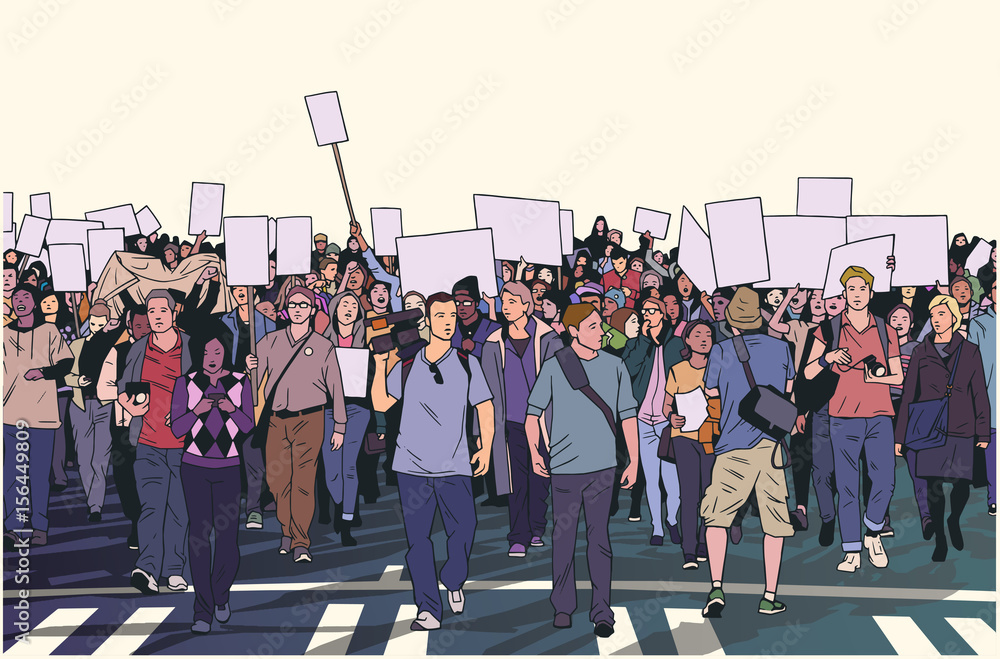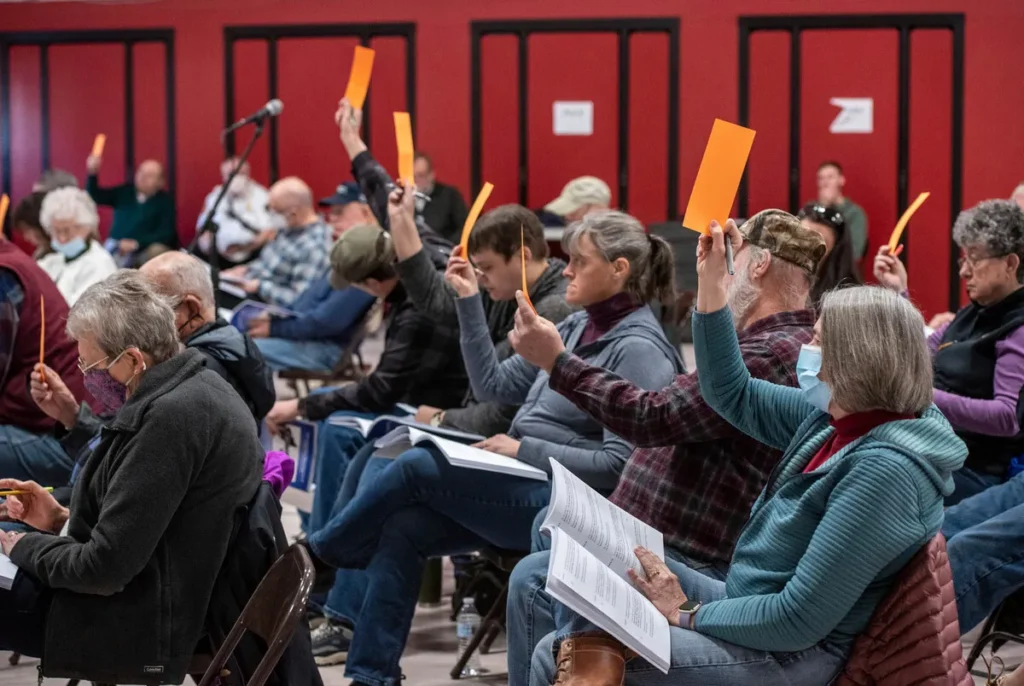Imagine, if you will: you are driving back from a Christmas party with friends on December 23rd, the day before Christmas Eve. It has been an academically challenging semester, and you really enjoyed spending time destressing during an evening chatting with friends. You drop off a friend who lives close by you – choosing to carpool to reduce carbon emissions and save a little money on gasoline.
You are driving through a different neighborhood than the one you are used to. It is very dark, and late at night – nearly 12:30am. As you are heading across Lawrence Ave E Westbound of Port Union Rd near the Rouge Go station, all of a sudden you make a terrible mistake. You are going what many consider to be a normal speed of 62 km/hr. There are only two other cars on the road, since almost everyone else is asleep patiently waiting for Christmas – but you are in the dreaded streets of Toronto! You slam on the brakes, but it is too late: you see a bright flash of light as a speed camera nails you.
You dread the rest of your Christmas holidays, during which you will be worrying about that fateful day when you have to explain to your parents the meaning of the inevitable letter in the mail, containing a hefty $80 fine!
Since you only have $11.12 in your bank account after paying for tuition, paper and pens, textbooks and cheap boots, not to mention gasoline, car insurance, and car payments, you elect to spend the 10-16 hours required to fight the ticket.
This time is part of the soft economic cost of the surveillance state policies which I am not alone in finding irritating. If every university and college student, young professional, and tradesperson is losing valuable time fighting these tickets, they are a greater cost to North American civilization than you might think.
Big Brother is Watching You!
The City of Toronto is implementing an “Automated Enforcement” system to reduce the prevalence of “excessive speeding” and the running of red lights, to improve roadway safety for all road users, especially our most vulnerable (school-aged children, older adults, people on bicycles and motorcyclists).
Automated Speed Enforcement (ASE) is a system that uses a camera and a speed measurement device to detect and capture images of vehicles traveling in excess of the posted speed limit.
A Red Light Camera (RLC) is a camera that captures an image of a vehicle which has entered an intersection in spite of the traffic signal indicating red (during the red phase). Generally, the camera is triggered when a vehicle enters the intersection (passes the stop-bar) after the traffic signal has turned red.
The dystopian sounding “Toronto’s Vision Zero” plan began in 2017. The City of Toronto said its total combined operating and capital spending on the Vision Zero between 2017 and 2021 was estimated to be $205.6 million. The budget for 2022 included $64 million to expand both enforcement and school crossing guard programs.
Toronto staff could not immediately say how much the city has spent to operate and maintain the cameras since 2020. The City has collected $34 million in fines, with the cameras issuing more than 560,000 tickets during their 2 years in operation. The average fine for someone with no demerit points is $107.
As of today, in the city of Toronto alone, there are 431 listed locations for punitive surveillance: 75 locations for Active Speed Cameras, 74 locations for Planned Speed Cameras, and 282 locations for Red Light Cameras.
It appears some people are not happy with the increased surveillance presence. Various cameras in and around the city have been trashed, tipped over, spray-painted and just generally destroyed by vandals – seemingly to spare themselves and other drivers from speeding tickets. It turns out, not all heroes wear capes.
Who is Watching the Watchmen?
Sure, there are lots of things to complain about in Canada. There are many ways in which various levels of government are already stealing your money and ruining your day. Nevertheless, surveillance camera tickets really grind my gears.
The principle of the cardinal virtue of Justice is that each man gets what he is owed. Now, some may say that my speeding ticket was a just application of the letter of the law. Yes, I am a young brown man in a beat up red 2013 Hyundai Elantra, and yes I was in fact going 62 in an unfamiliar place late at night just before Christmas Eve. But, is this a serious crime that merits a substantial fine?
What bothered me above all was how unjust the ticket truly is. I hurt no one by driving what is actually slower than the normal 40 mph (65 kph) speed limit for a main road in the United States.
Big Brother in the City of Toronto
The justification made for these financially, morally, mentally and judicially costly devices is that they are installed in the name of “safety”.
Bureaucrats argue that, in a highly urbanized environment with growing hustle and bustle, government policies, legislation, budgets, and faceless bureaucracy must “do the right thing” by installing a surveillance state.
They believe that Canadians cannot be trusted to govern themselves, to conduct themselves in a safe and free manner, to do the right thing at the right time in the appropriate manner.
Toronto bureaucrats, instead of responding to a very real crime wave composed of car thefts, home burglaries, drug smuggling, black markets, and cyber crime, are going after the pocket books of law abiding Canadians who do the most work to make the city a great place to live.
The War on Cars
The benefits to humanity from the invention of the automobile are countless and enormous: personal freedom and access to jobs and services, the development of better roads and transportation, and the creation of new industries.
If 28% of Torontonians do not have a vehicle (which seems disingenuous, if not downright false) that means 72% of Torontonians do use a vehicle – must use a vehicle. However, this majority is last on the priority list for city politicians who favour bike lanes, bus lanes, and any other policies that will increase congestion and ruin the days of millions of Canadians.
Many bureaucrats fail to take into account the soft economic, human impacts of their decisions – in this case, on the majority of Torontonians who depend on cars in their everyday lives.
John A. MacDonald Wouldn’t Like Speed Cameras!
One of the major reasons why many members of the lower middle working class like my Dad first started to love Donald Trump was his attack on bureaucrats and globalist elites, exemplified by his oft-repeated refrain: “They’re not after me, they’re after you, and I just happen to be standing in the way.”
This sentiment resonated with most of working class America. This set of values is, however, sorely lacking in Canadian politics.
Conservative ideology frequently falls into the trap of always being on defence and never going on offense. The encroachment of the surveillance state on the lives of Canadians, typified by speed cameras, is where I demand conservative policy makers go on offense.
John A. Macdonald is one of the few conservative politicians who clearly implemented conservative policy on offense. In a characteristically unapologetic statement in a Parliamentary debate on the subject of Confederation and Senate appointments, Macdonald proclaimed:
“It must be an independent House, having a free action of its own, for it is only valuable as being a regulating body, calmly considering the legislation initiated by the popular branch, and preventing any hasty or ill considered legislation which may come from that body, but it will never set itself in opposition against the deliberate and understood wishes of the people.”
I think the present drastic increase in punitive surveillance would be grossly against the will of a man like John A. Macdonald. It is also against the will of the general public in today’s Canada: the opinion of ordinary Canadians on government overreach was made clear during the Freedom Convoy.
I propose that Toronto stops any and all plans for costly future speed cameras. We do not want them, and we do not need them. Speed cameras cannot be done away with swiftly enough!
All content on this website is copyrighted, and cannot be republished or reproduced without permission.
Share this article!





A fews way to push back on speed camera besides full on objecting to it’s use with low thresholds, usually 10km over the limit, is to push for the legalization of all RADAR detectors for all vehicles, increase speed limits and scrap pedestrian right of way on roads/streets. Many pedestrian/vehicle accidents occur from unrecognized pedestrian/cyclist fault because of lack of pedestrian attention when crossing roads, walking on roads, increase devise use, disregard for vehicles because they know they have the right of way, or distraction. Vision zero, zero vision policies push for reducing speed limits on residential streets to a crawling 30km/h, ridiculously low to begin with, introducing crazy speed humps, other obstruction devises, and speed radar use to generate city revenue from out of control spending/debt/deficits for socialist programs that have nothing to do with property or infrastructure. Cities have now turned into income generating businesses with the purpose of maximizing revenue to pay for promised socialist programs in order to buy votes, stay in power, and keep elected officials and gov’t employees employed and expanding. They say it’s all about safety, when in reality it’s all about revenue. They have turned into a mafia organization. The stats for increasing govt employees far exceeds that of the private sector, whom will always vote to benefit and expand themselves. Canada is going marxist/socialist/feudalist in need of more serfs, slave immigrants and brain dead citizens to confiscate wealth unless this trend is reversed.